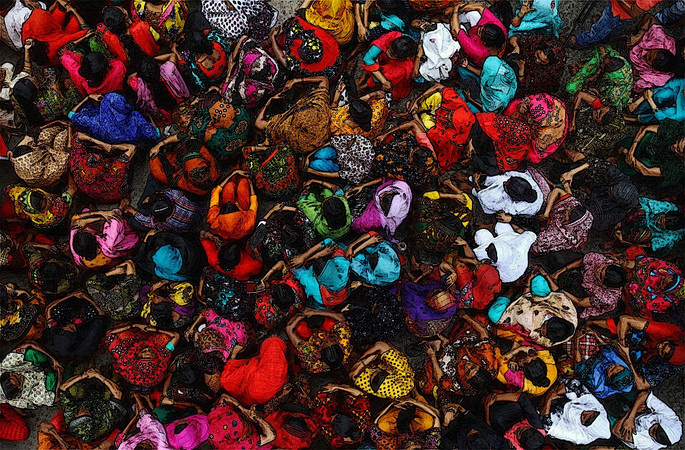Rich or poor, black or white, privileged or underprivileged, women live on the fringes. Even those who are educated and occupy important positions in society often find themselves susceptible to the atrocities of men and the patriarchal culture that supports them.
Within this division-ridden society, a woman is never looked upon as a woman but through the lens of multiple perspectives – religion, nationality, race, caste, class, economic condition, educational background, etc. – each of which adds to the vulnerability of her status. Moreover, every layer of such distinction pushes her further away from the main section of society.
A woman living in India who has no formal education and works as a housemaid is never seen as trying hard to make ends meet but as an uneducated, poor, brown female from a developing country. The problem with the addition of such adjectives is that – bit by bit, they snatch away the individuality of a woman, making her ‘multiply marginalised’. She is left on the fringes to struggle wherein, at times, she learns to accept violence and discrimination as a part of her life. She submits to the prejudices of men and society.
Imagine a scenario where a harassed woman who is tired of being abused regularly by her husband turns out to be the wife of immigrant labour in a foreign land. This leaves her with an even lesser scope of escape from her dire situation as the natives rarely trust foreigners. However hard we might try or, however loud we may shout, the truth is – immigrants suffer dearly because of biases and prejudice. Native men and women differentiate against them. And when a woman is not perceived as a ‘person’ even by other women but as a foreigner whose skin colour is different from theirs and who belongs to a different race, it makes her life heavily burdened.
Each of us has our own lens through which we judge the outsiders – those who are not ‘one of us’. And this judgemental perception divides women into thousands of small groups. Marginalisation becomes an even more painful situation when it serves as a source of the subjugation of women at the hands of other women, who by virtue of sharing the same sex were supposed to be on their side.
Another perfect example of the same is the case of differently-abled women.
Teased, taunted, looked down upon, and spoken about instead of talked to, they live an invisible existence, away from the world, hidden in the nooks and corners of dark rooms. Lamentably, mothers of these women often let them live a life of seclusion and spend the money and care of their share on those children who might bring them a return on that investment in their old age.
Furthermore, being considered sexless by onlookers, these women rarely have any good prospects for marriage. In exceptional scenarios, if a man falls in love with a differently-abled woman and wishes to marry her, he is persuaded by his family with all their might to leave his lover instead of a physically able woman who can bear him healthy offspring and carry his lineage forward.
Thereby, a woman is differentiated against, not only by men but also by women. Every such addition of marginal status becomes an encumbrance.
Although a differently-abled man might be able to live with dignity, being a woman in such scenarios means being discarded even from the sisterhood that is supposed to bind all women together.
In recent decades, another addition has been made to this category of women.
With the rise in Islamophobia throughout the world, a woman who chooses to wear hijab in accordance with her faith often finds herself being victimised with greater intensity and sadly by both men and women. Numerous instances have been reported worldwide wherein women in hijab were harassed and disgraced in the presence of other women, who refused to help them give in to their prejudice against the victim’s faith. In such scenarios, women bear the burden of being marginalised even by other women and hence suffer twice as much as others.
If we look closely at ourselves, we will find that sisterhood, which should have been a united front, has created categories, subcategories, and then some more sections within those subcategories. Women in each of these small sections stick together, excluding those from the other. This blurs our vision and removes it far from the actual viewpoint. In this case, we too are as much at fault as men who victimise women on account of their sex.
Patriarchy is a centuries-old tradition. Its roots are spread deeper than any one of us can fathom. To fight against the evil of this widespread menace, women need to stick together. This broken sisterhood that keeps on growing needs to be patched and manoeuvred. And we, as the crusaders of feminism, are the ones who have to initiate the process.



